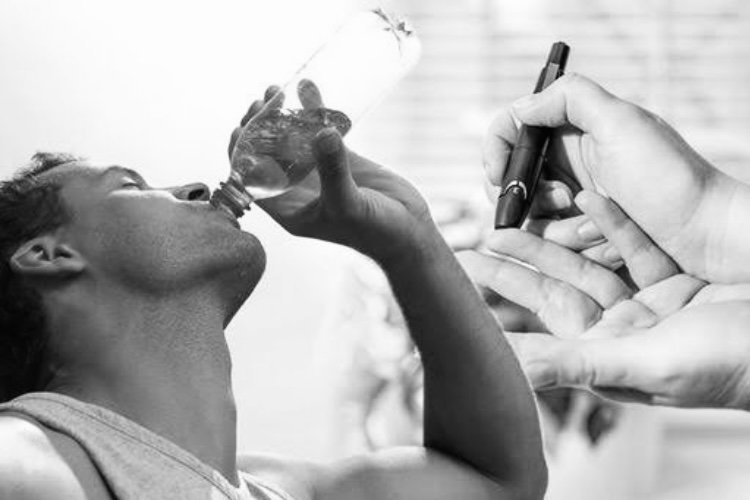Certain diabetes complications, such as damage to blood vessels and nerves, can affect your sweat glands so your body can’t cool as effectively. That can lead to heat exhaustion and heat stroke, which is a medical emergency.
People with diabetes get dehydrated (lose too much water from their bodies) more quickly. Not drinking enough liquids can raise blood sugar, and high blood sugar can make you urinate more, causing dehydration. Some commonly used medicines like diuretics (“water pills” to treat high blood pressure) can dehydrate you too.
High temperatures can change how your body uses insulin. You may need to test your blood sugar more often and adjust your insulin dose and what you eat and drink.
Warm-weather wisdom:
- Drink plenty of water—even if you’re not thirsty—so you don’t get dehydrated.
- Avoid alcohol and drinks with caffeine, like coffee, soda, and energy or sports drinks. They can lead to water loss and spike your blood sugar levels.
- Check your blood sugar before, during, and after you’re active. You may need to change how much insulin you use.
- Wear loose-fitting, lightweight, light-colored clothing.
- Wear sunscreen and a hat when you’re outside. Sunburn can raise your blood sugar levels.
- Don’t go barefoot, even on the beach or at the pool.
- Use your air conditioner or go to an air-conditioned building or mall to stay cool. In very high heat, a room fan won’t cool you enough.
- Get medical attention for heat-related illness.
- Have a go-bag ready for emergencies.
- Keep medicines, supplies, and equipment out of the heat.

